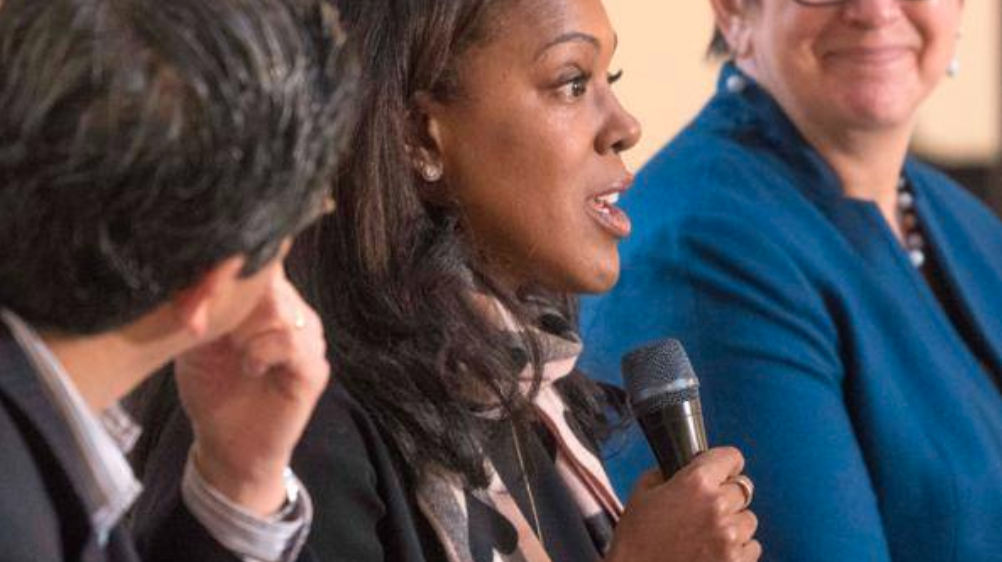
Executive Speaker Series Hosted CBS Senior Vice President of Diversity and Inclusion
CBS Senior Vice President of Diversity and Inclusion, Catrice Monson, sat alongside Dean Zhan Li of the School of Economics and Business Administration and Dean Sheila Hassell Hughes of the School of Liberal Arts on March 14, 2018, for a fireside chat on appreciating diversity and how to create an engaging and inclusive environment in the workplace.
Monson, who started out as a lawyer, fell into her line of work when she was asked to declare a major at Stanford. Before going to law school, she chose American Studies, “…the perfect blend of history, English and communications,” while also minoring in race and ethnicity. "I didn't do a straight line," said Monson. "I took a lot of turns here and there."
Working at the Children's Defense Fund in Washington D.C., with Congress and senators for Head Start under a lobbyist who taught her to advocate, Monson started to grow interested in the burgeoning area of diversity and inclusion. There she found the roots of her current role working with CBS. Over her career, Monson has taken every opportunity she can to work within the arena of diversity and inclusion.
"I'm doing my passion," she said. It took her twenty years and she has no regrets.
Working in the entertainment industry, CBS aims to make the biggest impact both behind and in front of the camera by including employees of diverse background, culture, and ethnicity. Though CBS and the entertainment industry in general has made great strides in this area, Monson says “We still have a lot of work to do.”
Monson also spoke about unconscious bias as personal background, experience, larger societal stereotypes, and cultural contexts all can have an impact on decisions and actions we make that are largely unconscious. Implicit or unconscious bias happens when our brains make judgments and assessments of people and situations based on these parameters. Biases, unconscious or conscious, are not limited to ethnicity and race. Age, gender, religion, sexual orientation, weight, and several other characteristics are subject to bias. “We all do it, we all can fall prey to it,” she said. We should always question our impulsive feelings about something and check whether they are related to unconscious biases. We need to slow down and allow for diversity and differences in perspective in our decision making processes for hiring and inclusion.
Monson suggested one anecdote to unconscious bias in your life was to make a list of the 5-10 people to whom you go for advice. Compare their demographics and backgrounds to see if they are all similar. If so, she says, strive to seek out someone with a different background next time you need advice and see how it compares.
Another takeaway was the idea of a mentor versus a sponsor. A sponsor opens doors, a mentor helps you go through the door. Monson’s career advice was her suggestion to find a sponsor, who can open a door for you.
She ended on the note that you don't need to have a fancy title to be an advocate for diversity inclusion, you can start where you are by engaging in side projects at work or in your community.